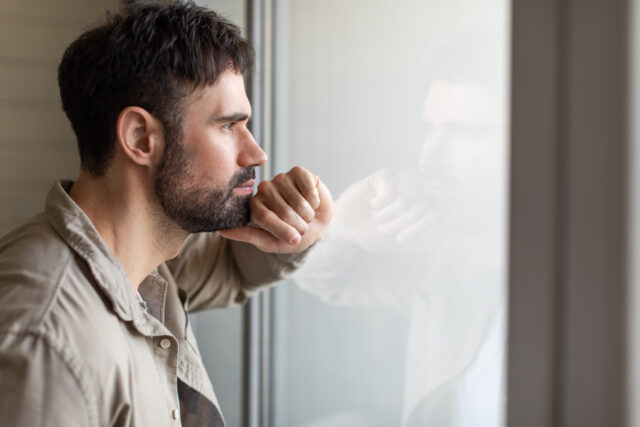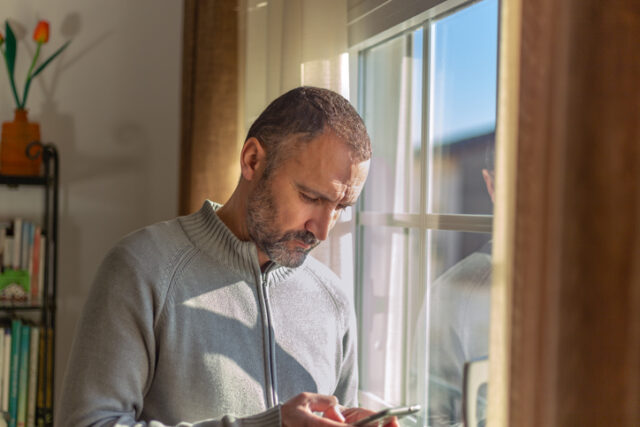Confidence isn’t something you magically wake up with—it’s something you build, brick by brick, usually while second-guessing yourself the entire time.

If you’ve ever looked at someone and thought, “How are they so sure of themselves?”—spoiler: they’re not. They’ve just learned how to move through the self-doubt without letting it shut them down. If you’re not feeling confident yet, it doesn’t mean you’re broken. But it probably does mean you’re stuck in a few habits that quietly eat away at your belief in yourself. Here’s what might be getting in the way, and how to start changing it.
1. You wait until you feel ready before you try anything.

You tell yourself you’ll go for it when you’re more qualified, less awkward, or suddenly wake up fearless. The thing is, confidence isn’t the entry ticket—it’s the result. You build it by showing up before you feel ready. That waiting game just reinforces the belief that you’re not capable yet. Start before you’re sure. Take small risks. Let yourself be a beginner. That’s how confidence gets built, not downloaded overnight.
2. You talk to yourself like an enemy, not a friend.

If someone else spoke to you the way your inner voice does, you’d block them. And yet, somehow, you let your own brain narrate every setback with insults and worst-case scenarios on loop. Confidence doesn’t grow in that kind of environment. It needs encouragement. You don’t have to be overly positive, but you do have to be kind. The way you speak to yourself is either fuel or sabotage. Choose wisely.
3. You compare your everyday life to everyone else’s highlights.

You see someone succeeding and think, “I could never.” However, you’re clearly seeing their polished moment—not their mess, their doubts, or the years of trial and error that got them there. Comparison steals your momentum. The only person you should compare yourself to is a past version of you. That’s where the real growth is hiding, not in someone else’s filtered success.
4. You downplay your strengths because you think modesty equals humility.

You’re afraid of sounding full of yourself, so you soften every compliment, joke about your own wins, and pretend the things you’re great at are no big deal. Of course, real confidence isn’t arrogance—it’s honesty. If you’re good at something, own it. You don’t need to shout about it. You just need to stop pretending it’s not true.
5. You expect confidence to feel like certainty.

You think confidence means knowing exactly what you’re doing, but it’s not. It’s being willing to try, even when you don’t. It’s moving forward without a guarantee that you won’t mess up. Certainty is rare. Confidence is what gets built in its absence. The trick isn’t to wait until all the fear goes away. The trick is doing it scared, and letting that be enough.
6. You haven’t made peace with being seen.

Part of confidence is letting yourself take up space, but that’s hard when being visible still feels like a threat. You worry people are judging. That you’ll look stupid. That you’ll regret speaking up. The thing is, confidence doesn’t come from hiding until it’s safe. It comes from letting yourself be visible, and realising the world doesn’t end when you’re not perfect.
7. You overthink every decision until the moment passes.

By the time you’ve analysed every angle, doubted yourself, and rehearsed five possible outcomes, the moment’s gone. All you’re left with is regret that you didn’t just do the thing. Confidence grows from action, not from mental marathons. Not everything needs to be over-examined. Sometimes you just have to hit send, raise your hand, or show up before your brain talks you out of it.
8. You surround yourself with people who don’t reflect your potential.

Confidence gets chipped away when you’re always around people who minimise, mock, or subtly compete with you. Their smallness makes you doubt your bigness. Find people who remind you what you’re capable of, not ones who keep you second-guessing your worth. Environment matters more than we realise. You grow where you’re watered, not where you’re picked apart.
9. You don’t give yourself credit for small wins.

You’re so focused on the big goals, you ignore the tiny victories. The time you spoke up in a meeting. The time you showed up when you wanted to quit. Those moments matter. Confidence is a muscle, and it grows through repetition. Every small win is a rep. Don’t skip them. Celebrate them, even if it’s just with a quiet nod to yourself.
10. You apologise for existing.

You say “sorry” when someone bumps into you. You shrink your opinions to keep the peace. You act like your presence is a problem instead of a gift. Confidence comes from remembering you have the right to take up space, have needs, and be heard. You don’t have to earn your place—you already belong here.
11. You haven’t forgiven yourself for the past.

That one time you embarrassed yourself. The goal you dropped. The version of you that wasn’t ready yet. You’re still carrying the weight of it like proof you can’t trust yourself now. Of course, confidence doesn’t require a flawless record. It requires self-trust. Self-trust begins when you stop punishing past-you and start backing present-you instead.
12. You expect confidence to show up fully formed.

You think one self-help book or one good day will fix it, but confidence isn’t a light switch—it’s a dial. Some days it’s low. Some days it’s higher. That’s normal. The more you practise showing up in your own skin, the easier it becomes. But it’ll never be perfect. Confidence is built in motion, not in waiting for it to arrive.
13. You confuse confidence with being loud or extroverted.

Confidence isn’t about being the most talkative in the room. It’s about being grounded in who you are, even when you’re quiet, unsure, or still figuring it out. Some of the most confident people don’t say much, but when they do, it lands. Don’t let the volume of other people make you question your value. Stillness can be powerful, too.
14. You look for external validation to prove internal worth.

You wait for other people to praise you before you believe you did a good job. However, that makes your confidence a moving target, forever reliant on someone else’s approval. You don’t need a chorus of applause to be proud of yourself. Learn to recognise when you’ve shown up well. Let that be enough. Confidence grows when you stop outsourcing your worth.
15. You’re waiting for fear to disappear.

Here’s the truth: fear never fully goes away. Even the most confident people still feel it. They’ve just learned not to let it drive the car. If you’re waiting to feel fearless, you’ll be waiting forever. Confidence isn’t the absence of fear—it’s deciding to move anyway. That’s where the power lives.
16. You haven’t realised how normal your doubts are.

You think you’re the only one overthinking, fumbling, or unsure of your next step. But most people are just figuring it out as they go, pretending to have it together. Confidence comes when you stop expecting perfection and start expecting humanness. You’re allowed to be learning. You’re allowed to be in progress, and honestly, that’s a lot more powerful than pretending you’ve got it all sorted.




